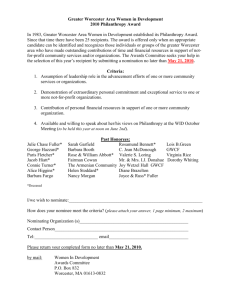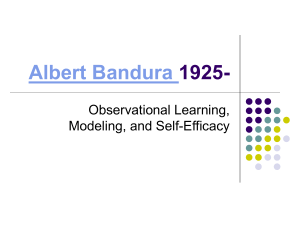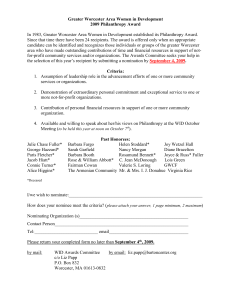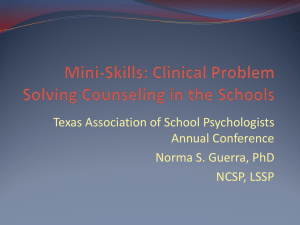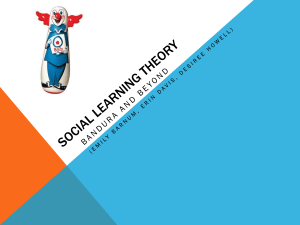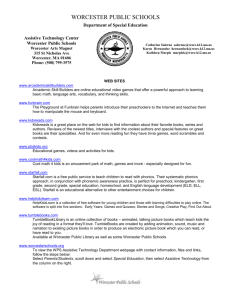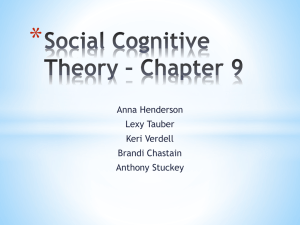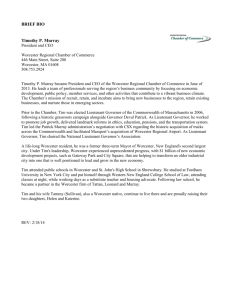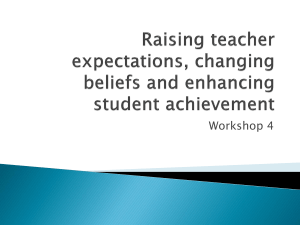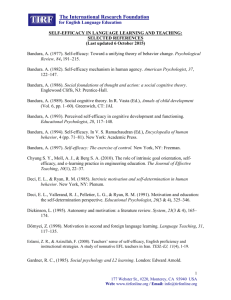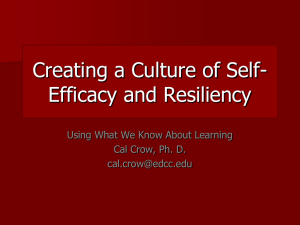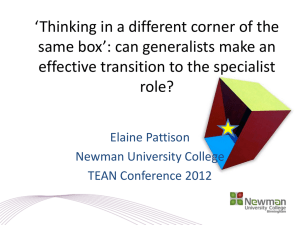the PowerPoint presentation
advertisement
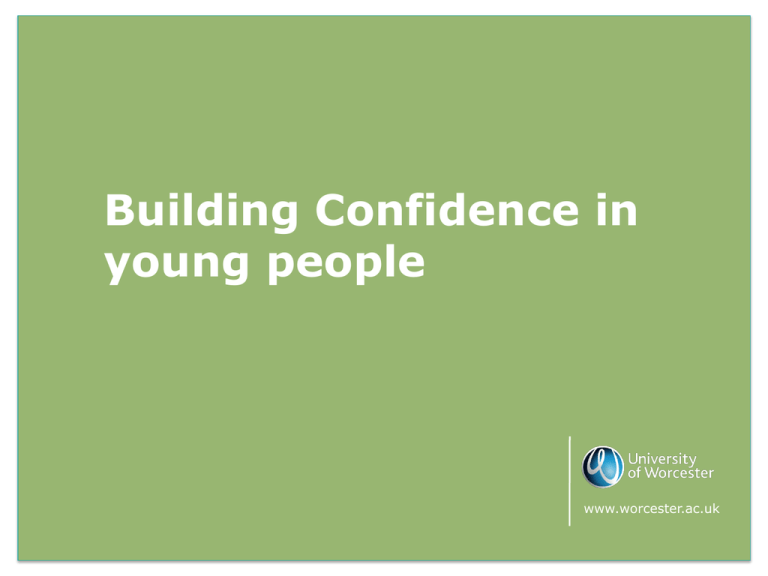
Building Confidence in young people www.worcester.ac.uk In addition to notions such as learning styles and emotional intelligence, decision making and choices are determined by degrees of motivation and self confidence often influenced by social background and the environment. www.worcester.ac.uk Building Self-Efficacy What is Self-Efficacy? A useful model on Self Efficacy is that offered by Bandura (2001) Bandura has defined self-efficacy as one's belief in one's ability to succeed in specific situations. One's sense of self-efficacy can play a major role in how one approaches goals, tasks, and challenges. www.worcester.ac.uk Building Self Efficacy According to Bandura, there are 4 main sources of selfefficacy: 1 Mastery Experiences 2 Social Modeling 3 Social Persuasion 4 Psychological / Physiological responses www.worcester.ac.uk 1. Mastery Experiences “The most effective way of developing a strong sense of efficacy is through mastery experiences," Bandura (1994). Performing a task successfully strengthens our sense of selfefficacy. However, failing to adequately deal with a task or challenge can undermine and weaken self-efficacy. The mentor can help by: • Breaking the goal down into small steps • Role playing scenarios • Mental preparation (e.g. visualisation) www.worcester.ac.uk 2. Social Modeling Witnessing other people successfully completing a task is another important source of self-efficacy. According to Bandura, “Seeing people similar to oneself succeed by sustained effort raises observers' beliefs that they too possess the capabilities master comparable activities to succeed” (1995). The mentor can help by: •Encouraging them to actively observe successful behaviour by others. •Practicing the observed behaviours (imitating). •Using your own personal experiences to demonstrate. www.worcester.ac.uk 3. Social Persuasion Bandura also asserted that people could be persuaded to believe that they have the skills and capabilities to succeed. Consider a time when someone said something positive and encouraging that helped you achieve a goal. Getting verbal encouragement from others helps people overcome self-doubt and instead focus on giving their best effort to the task at hand. The mentor can help by: • Being encouraging and having a belief that they can do it • Collecting and being alert to positive comments they have received www.worcester.ac.uk 4. Psychological Responses Our own responses and emotional reactions to situations also play an important role in self-efficacy. Moods, emotional states, physical reactions, and stress levels can all impact how a person feels about their personal abilities in a particular situation. A person who becomes extremely nervous before speaking in public may develop a weak sense of self-efficacy in these situations. However, Bandura also notes "it is not the sheer intensity of emotional and physical reactions that is important but rather how they are perceived and interpreted" (1995). www.worcester.ac.uk By learning how to minimize stress and elevate mood when facing difficult or challenging tasks, people can improve their sense of self-efficacy. The mentor can help the mentee by: • Raising awareness of self talk • Teaching people how to cope with stress (e.g. breathing techniques, anchoring) www.worcester.ac.uk Any Questions? www.worcester.ac.uk
